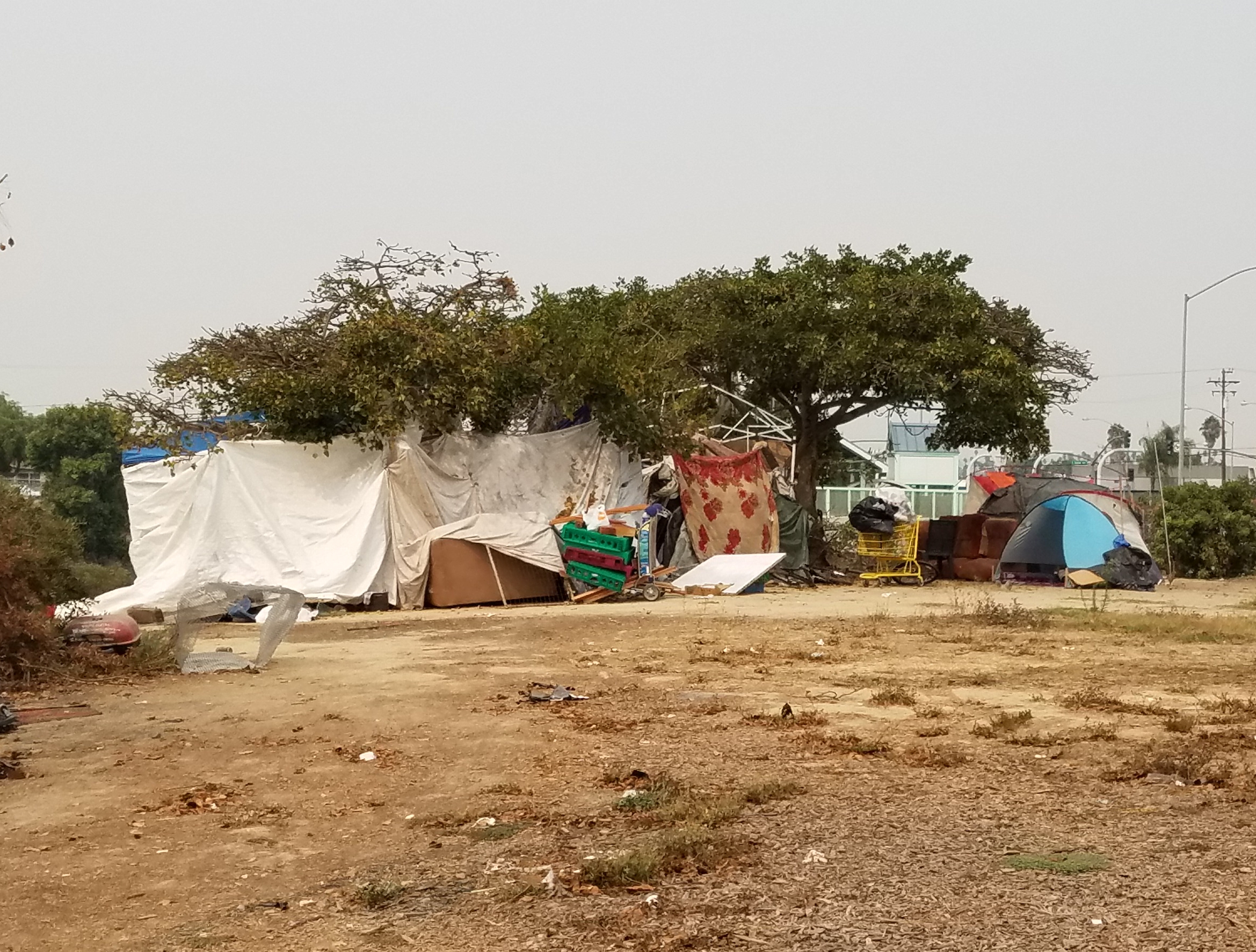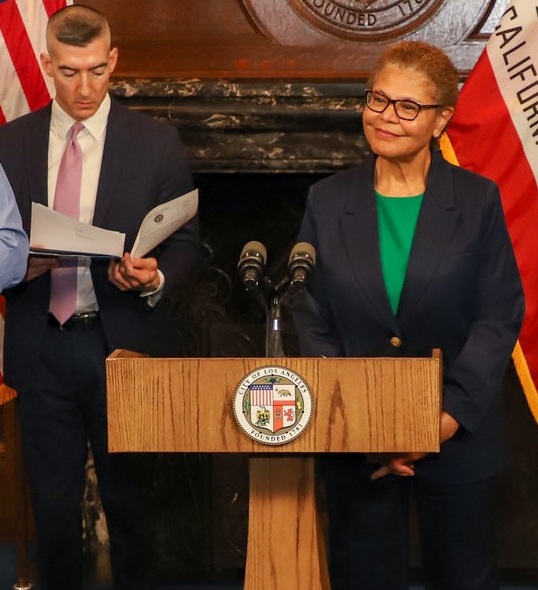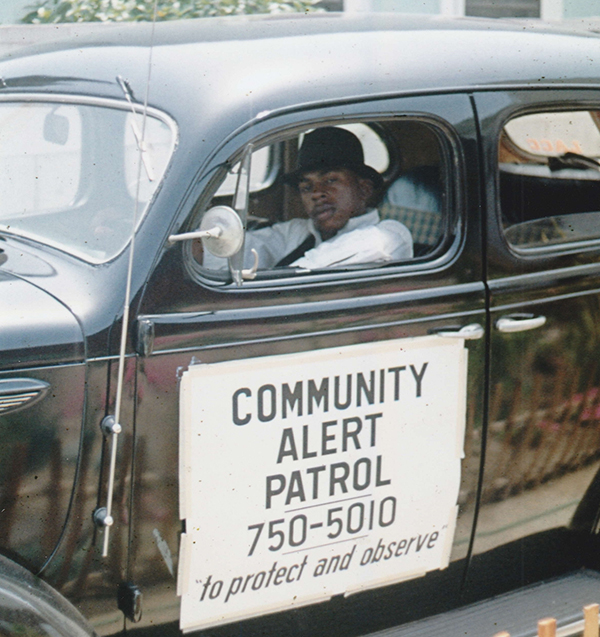Wave Wire Services
LOS ANGELES — The plaintiffs in a lawsuit addressing the Los Angeles homelessness crisis in light of the COVID-19 pandemic questioned why costs for agreed-upon interim shelter programs appear “exorbitantly expensive.”
The L.A. Alliance for Human Rights said Oct. 20 that it applauds the swift action in certain council districts throughout the city to meet the Los Angeles city/county’s joint agreement to provide 6,000 beds for persons experiencing homelessness by April 2021 and an additional 700 beds in the months thereafter.
However, the per unit cost of temporary housing is far higher than market price, the plaintiffs wrote in a status report filed in Los Angeles federal court.
The recently proposed Pallet personal shelter — or tiny homes — programs, created in accordance with the city and county’s memorandum of understanding, are being implemented at a cost of $39,075 per bed, not including services, the L.A. Alliance wrote.
This stands in sharp contrast to the reasonably low cost of the Pallet shelters themselves — $8,332 per shelter (or) $4,166 per bed,” and stands in contrast to the low cost that other cities have managed with the same structures — notably $8,252 per bed in Riverside and $14,875 per bed in Sonoma, the plaintiffs alleged.
In a status report filed last month addressing the cost disparity, the city maintained other projects are not comparable because they were smaller, utilized donated labor, and multiple people would be served per bed, reducing the total cost.
However, the L.A. Alliance claims it has identified a per-bed rate, so the size of the project should not matter. Also, the city has “failed to demonstrate why volunteer labor could not be utilized in this project and why the multiple-people-per-bed theory wouldn’t be equally applicable to the other identified projects as well,” the document states.
“The ultimate concern with the high cost of these projects is the implication on future projects, and the ability of city and county to support significant projects moving forward,” the L.A. Alliance said. “If the city is paying such a high cost to shelter a limited number of persons, when basic cost-control measures could be taken to significantly reduce expenditures, plaintiffs are concerned those expenditures threaten to derail the higher goal of providing tens of thousands more beds. In other words, the city cannot spend exorbitant sums now and plead poverty later.”
The plaintiffs wrote that in the current situation, where projects are moving forward, it is not the intention of the L.A. Alliance to “derail or delay any projects which provide welcome relief to those who desperately need it; however on future projects plaintiffs strongly suggest more attention [should be given] to cost-saving measures that may be utilized to prevent such significant expenditures which threaten to leave too many on the streets.”
The plaintiffs also requested an accounting of the state’s Mental Health Services Act funds this year, including the amount currently unspent, and how those funds may be spent on shelter or housing for homeless individuals suffering from mental illness.
In a filing last week, the city reported that more than 335 people experiencing homelessness in Los Angeles have left the streets and entered housing since June, and of the target homeless populations, shelter has been provided for 20 people previously located within 500 feet of a freeway, 36 indigent individuals aged 65 or older, and 282 otherwise vulnerable people during the period from June 16 to Oct. 15.
The report, filed late Oct. 15 in Los Angeles federal court, is the first issued since Los Angeles city and county officials resolved a deadlock that held up action in an agreement to provide 6,700 beds and services for the region’s most vulnerable residents.
A push to evict homeless persons living beneath or near area freeways gathered momentum Oct. 13 when the city began posting notices near Ventura (101) Freeway underpasses in the San Fernando Valley. The notices indicate that mandatory relocations from all areas within 500 feet of the freeway between Lindley Avenue and Valley Circle Boulevard would be required by Oct. 27.
The notices posted by the city refer explicitly to the homelessness lawsuit, referencing it by name and case number. The notices also state that representatives from Los Angeles federal court are overseeing the eviction.
The Los Angeles Community Action Network and Los Angeles Catholic Worker — intervenors who are parties to the lawsuit that precedes the action — requested a status conference Oct. 16 “to give the parties and the public the opportunity to obtain some clarification” on the city’s plans for the relocations.
As for those facing eviction, they are being offered short-term motel vouchers, the funding for which is coming from COVID-19 relief funds, according to the intervenors.
“The intention is to transfer individuals to existing bridge housing, once shelter becomes available, but even these bridge housing beds will be existing beds, not new beds created pursuant to the agreement between the city and the county,” the filing states.
According to a binding term sheet filed last week, the city is responsible for creating 5,300 new beds by April and 700 additional new beds by December 2021, for a total of 6,000 new beds. The city also must provide an additional 700 beds by April that “may be beds previously captured in an agreement or plan between the city and county,” according to the county’s notice.
To assist in funding services for the 6,000 new beds, the county will pay the city up to $60 million per year for five years. The county will pay to the city a one-time bonus of $8 million if the 5,300 new bed target is reached within 10 months.
The first payment of $17.6 million to the city was made on Sept. 1 in compliance with the term sheet.
U.S. District Judge Andre Birotte Jr. wrote that, with Christmas fast approaching, “both governments need to act now. History should not be doomed to repeat itself here, and the court is committed to ensuring that the city and county work together” to bring the homeless off the streets.
The report is part of the settlement of a lawsuit brought by the L.A. Alliance for Human Rights, a coalition of Skid Row-area business owners, formerly homeless and disabled city dwellers, who accuse the city and county of dragging their feet in not doing enough to get the homeless off city streets and into housing — especially in light of the COVID-19 pandemic.











